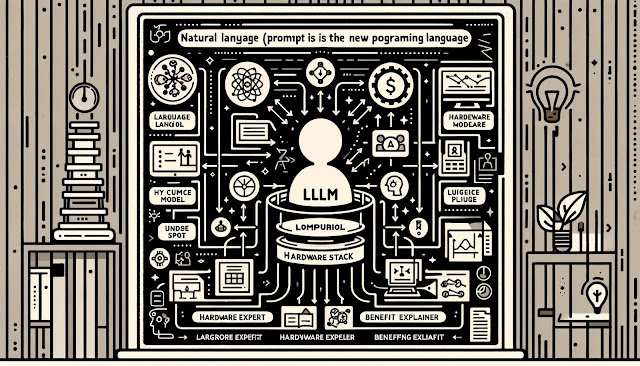The Paradigm Shift in Computing

I found my thoughts on a fundamental paradigm shift in how we compute: my handwritten scribbles on my Samsung Note while I was attending Jensen’s digital keynote during GTC 2022. I expanded it below. We are witnessing a fundamental paradigm shift in computing technology. This paradigm shift in computing is transforming from hardware and operating systems (OS) to application program interfaces (APIs) powered by large language models (LLM) in a world that embraces natural language programming. No Moore’s Law-driven improvement in processor speed or memory size will alter the fact that our current computing landscape is being turned upside down. A new era of computing has arrived — one where Large Language Models (LLMs) and API-based services usher in a new way to interact with and program computers, abstracting away the utilization of hardware and operating system stack. So far, so good. Computing has had a technological lineage that operated in a bottom-up fashion: we first start ...


